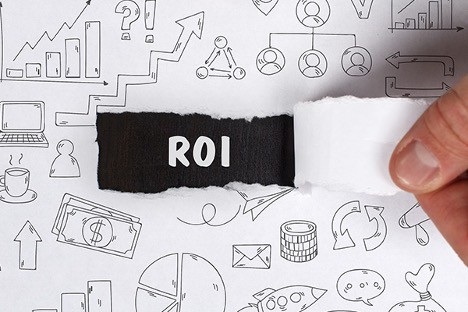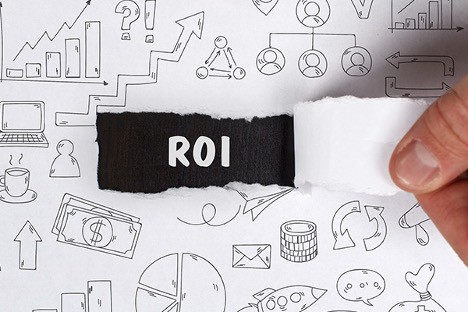Measuring the Experience

About The Brand Enabled Podcast & all episodes
I’m excited to have Jonathan with me. Jonathan, introduce yourself to the audience, and tell us a little bit about where you are and what you’re doing.
It’s great to be here. Thanks so much for having me, Greg. My name is Jonathan Yaffe. I’m the CEO and Cofounder of AnyRoad. We are a platform for consumer experiences globally. We power both the operations and the data around some of the most immersive, transformative experiences in the world.
The show is about digitally enabling, but it’s really digitally enabling experiences with me and Monigle, and think about things in terms of human experience and human problems. You’ve actually built a platform that will measure how an experience changes a consumer’s perception around a brand. Tell us how you stumbled into that, and what inspired you to start down this path? That’s a significant problem for everyone reading.
I started to think about perception and emotions in college when I was studying Cognitive Neuroscience, and starting to really understand the depths of where emotion comes from. My first job ever right after college was at Red Bull. Red Bull had just come to the United States. Not too many people knew what it was. I got hired onto the Brand Marketing team, and it totally blew my mind because we were spending $1 billion per year on experiences.
We believed even back then, and this was many years ago, that digitally advertising was already extremely over-saturated. We see something like 14,000 advertisements every day, and they don’t actually change our behavior at all. You bring your family to this crazy Red Bull event, and there are people jumping out of airplanes, going down mountains on tricycles. DJs are playing. People are dancing. Everyone is having an amazing time. Somebody comes up to you and hands you an ice-cold Red Bull. This actually creates an emotional bond that not only changes your perspective of the brand, but also changes your purchase behavior going forward.
The world is undergoing a massive cultural shift from a things economy to an experience economy.
We spent over $1 billion a year on these incredible immersive experiences attracting hundreds of millions of consumers for over the years. It worked. Red Bull has, by far, the number one market share, but it drove me absolutely crazy that we had no data. We had no understanding of how powerful these consumer experiences were.
It turns out now, many years later, the world is undergoing a massive cultural and economic shift from a things economy to an experience economy. We see this in terms of Millennials, who are spending way more money on experiences than things. We see this in terms of retail brands that are literally shutting down every single week. The brands that are thriving are actually transforming themselves into experiential businesses. We partner with these brands that are actually becoming experiential brands and give them the software and the data to be able to scale their experiential programs globally, pull in a ton of customer data and actually build next-level relationships with their consumers.
It’s fabulous. You talked about how changes in perceptions that really are emotions that become somatic memories for people that changes purchases. I know it’s in all of your literature, it’s the changes that are the likelihood to talk and share the good news. You’re sitting there, “I want to put some data to this.” Tell us a little bit about what your journey was to figure that out, and maybe what your customer’s journey is now. You figured it out but now I’ve got brand folks reading and going, “I want to be cool and experience and understand it.” What did you do to set it up and what do they have to do to set it up?
I think a lot of this comes back to the evolution that marketing is going through. Many years ago, it was like Mad Men style, if you know that show. People sit around a desk and debate how this makes you feel and the creative aspects of some new ad that’s coming out. That’s great. It started as a very creative endeavor. Now, if you’re the CMO of a Fortune 2000 company, you are a data scientist. You need to understand different channels, ROI, CTRs, CAC, LTV. You need to understand where people are coming through and how you’re actually retaining them. That kind of data rigor is defacto for anything digital. Imagine investing in Google Ad Words but not actually having the click-through rates and conversion rates.
You don’t get the dashboard. You’re just throwing darts.

Measuring experience: The brands that are thriving are actually transforming themselves into experiential businesses.
Imagine coming out of college and you are a Junior Digital Marketer. It’s your first job and your boss gives you $10,000 and says, “Greg, go invest this in Google, on Google Ads.” You’re like, “Okay.” Remember, there’s no Ad Words dashboard, so your boss comes back to you in a couple of weeks and says, “Greg, how was that?” You’re like, “It went great. A lot of people saw it. People seem to really like it. I saw some people smiling after they looked at their phones. I think this was great.” He’s like, “How many people saw it?” “We don’t really know, but obviously some people saw it. It was great. We should do more of this.” That sounds ridiculous to us now.
The reason that Google and Facebook got so large is that they have actionable data and A/B testing around everything that they do. What we are doing is bringing that data rigor and statistical rigor to the world of real-life and offline experiences. You mentioned what are the journeys of these brands? They’re already investing hundreds of millions of dollars, if not billions of dollars a year in experiential, but they don’t yet have any data connected to it. We’ll start off really basic like, “How much did you spend on experiential last year?” I’ll be like, “$700 million.” “How many people did you touch?” “We don’t really know.” “Who participated in these experiences?” “We’re not really sure.” “Did people like it?” “I don’t know. They seem to be smiling a little bit.” “How did this change their brand perceptions?”
I’m sure these experiences were amazing. I’m sure people loved it. We laugh about it now but this is exactly what we’re hearing. By giving the platform and the software and the data to these folks who are spending heavily in transformative experiences, what we’re seeing is that people are actually shifting their spend from digital to experiential. It makes me very happy, but I think it’s better for the world too. I don’t think we need more money going into billboards, digital ads, and Instagram ads and stuff like that. I would rather this money go into immersive experiences that actually brings joy to the world.
Trying to sell a soda has much advertising saturation as political campaigns. At the end of a political campaign, it’s just who’s willing to pay the most for more GRPs that don’t matter anyway because everyone has seen your ad 42 times, and this is a whole new venue. It sounds to me that you’re teaching them how to collect the data, how to organize it, and in the sense that they just need to plug in their inputs, how ever they’re collecting them into your platform that starts to say, “Here’s an ROI, perceptions lead to this. You can correlate those perceptions to sales.” Is that fair?
Yeah. I would go one step further. We actually collect all the data for them. We do the analysis for them. We do the segmentation for them. This results in a ton of both qualitative and quantitative data.
Marketing these days requires a really interesting balance of both the creative and the data.
You’re just texting them their media plan.
They’re plugging us into basically be the ad words for everything that they do in real life.
That’s a tremendously exciting breakthrough because people never felt you could put those kinds of metrics around experience. I think the meta notion of experience and things is absolutely feeling a lot of your success. What’s the hard part? Where’s the barrier? Is it just awareness and people getting enough trials on your system? You have raised so much capital, you have great names of venture behind you. You have so many successes. Not everyone will be able to see you, but you look calm and relaxed for a high-growth engine business. What’s the hard part for you or mostly for your clients? Everyone reads this, and you’ve got so much evidence that it’s working. What are they going to face when they come to this opportunity?
Change management for anything is a big lift, but specifically for some of these companies that have been around for 50 or 100 years. Going back to my joke about Mad Men, I do think that marketing these days requires a really interesting balance of both the creative and the data. We are seeing the problems of that being overweighed to all data. You see Facebook and Google Ads, like the CAC is increasing significantly. LTVs are decreasing. People are just getting tired of seeing so many ads on their digital feeds
On the other side, you have the people who are like the traditional experiential people who are like I was at Red Bull, all creative, and they’re like, “This is amazing. Everyone’s smiling. People seem to be having a great time. Let’s film them, put it on YouTube.” I’m like, “That’s not science.” It’s hard to change brand behavior for some of these massive companies. It’s hard to say, “For the folks that are too much indexing on the creative side, let’s bring data rigor to it. For the folks who are like, ‘Digital is god. Digital is everything,” actually experiential is a little harder to scale than increasing your spend on ads. It has about 25X the ROI of anything digital. We realized this at Red Bull. It worked for them. It turns out it works for a ton of other Fortune 2000 consumer businesses.

Measuring experience: Experiential, while it’s a little harder to scale than just increasing your spend on ads, it has about 25x the ROI of anything digital.
Change management is really good. I remember when I went to my first digital conference, and I was on the panel. They said, “What do you think of digital?” I said, “If it’s so great, why do we need to come to a conference?” Because there’s still a human longing for human connection, and experiences make a difference. It’s simple as how a can is designed and the way it opens and what’s in it, to an event and those types of things. It’s a wonderful a world that you’ve mastered in a sense of bringing that to life for people. I have a final question. It’s pretty simple. What is the one word when you think of digitally enabling a brand? I think you could even say digitally enable a branded experience. Why do you think of that word?
Connection, because after two years of being stuck in our living rooms, we are not finally emerging out into the world and just buying a bunch of stuff. We’re not emerging out into the world and just clicking on a bunch of ads. We are going to concerts. Planes are packed. Hotels are sold out. Restaurants are sold out. It’s impossible to get a reservation. People are going to branded experiences by going to their favorite breweries. We crave human connection.
Part of being human is actually having that in real life connection. The brands that are thriving are taking full advantage of that. Realizing that the way to connect with their consumers, and build the next generation of customers and actually build that brand love is not by showing them 10X more advertisements. It’s about creating immersive experiences that create that emotion. For me, it is about connection, and that’s what makes us human.
Jonathan Yaffe, AnyRoad, so happy to connect with you. Thanks for coming to the show. Thanks, everyone, for tuning in.
Thank you, everybody. It’s great to be here with you, Greg. I’m on all of the socials.
We’ll connect. Thanks, everyone. Have a great day.
Important Links
About Jonathan Yaffe
 Jonathan Yaffe, the cofounder and CEO of AnyRoad, believes in the power of leveraging data to scale transformative experiences. He founded AnyRoad, the first ERM platform (experience relationship management) after working for Red Bull, where his team strategically invested billions of dollars in experiential initiatives, without any direct insight into analytics or ROI. While living in Japan for ten years, Jonathan also co-founded the acclaimed boutique KAIS International School, the Mirai Institute, the first independent think tank in Japan, Midori.so, a network of creative incubators and co-working spaces, and three art galleries. He also serves on the board of Zero Gap, a nonprofit dedicated to closing the gender gap in business. Jonathan has traveled to 96 countries, lived in Brazil, Colombia, Switzerland, the United States, and Japan, and is a sushi addict.
Jonathan Yaffe, the cofounder and CEO of AnyRoad, believes in the power of leveraging data to scale transformative experiences. He founded AnyRoad, the first ERM platform (experience relationship management) after working for Red Bull, where his team strategically invested billions of dollars in experiential initiatives, without any direct insight into analytics or ROI. While living in Japan for ten years, Jonathan also co-founded the acclaimed boutique KAIS International School, the Mirai Institute, the first independent think tank in Japan, Midori.so, a network of creative incubators and co-working spaces, and three art galleries. He also serves on the board of Zero Gap, a nonprofit dedicated to closing the gender gap in business. Jonathan has traveled to 96 countries, lived in Brazil, Colombia, Switzerland, the United States, and Japan, and is a sushi addict.